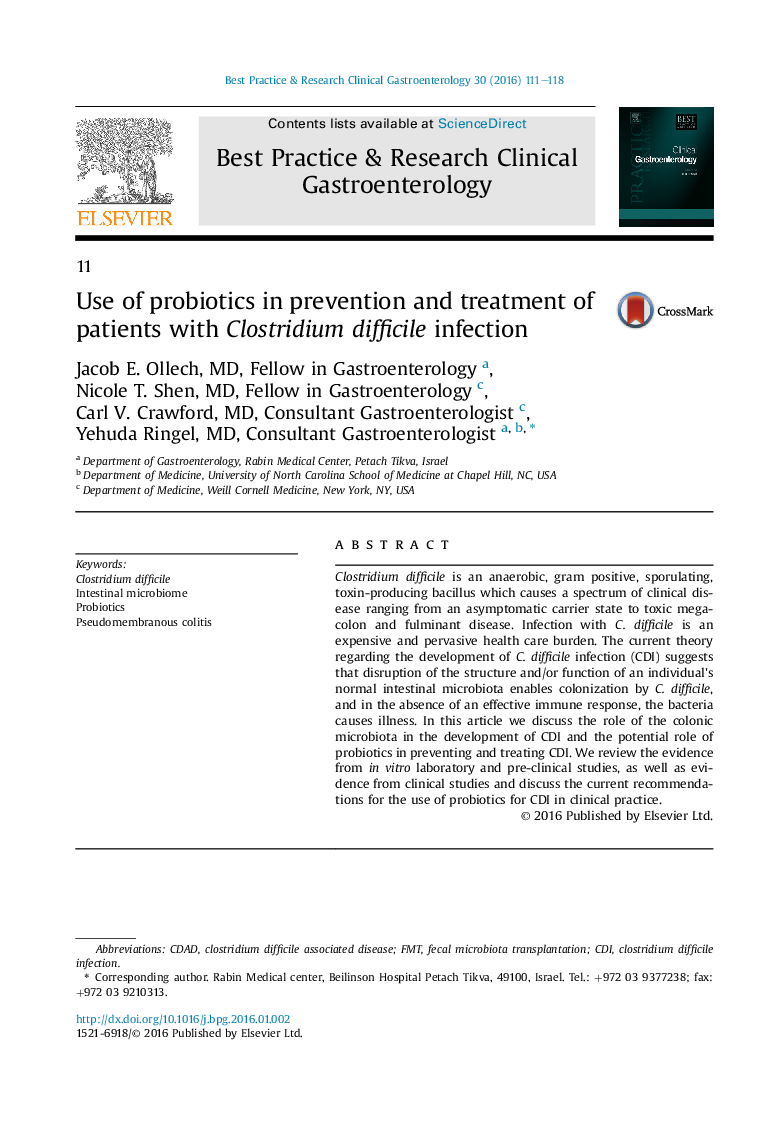| Article ID | Journal | Published Year | Pages | File Type |
|---|---|---|---|---|
| 3254007 | Best Practice & Research Clinical Gastroenterology | 2016 | 8 Pages |
Clostridium difficile is an anaerobic, gram positive, sporulating, toxin-producing bacillus which causes a spectrum of clinical disease ranging from an asymptomatic carrier state to toxic megacolon and fulminant disease. Infection with C. difficile is an expensive and pervasive health care burden. The current theory regarding the development of C. difficile infection (CDI) suggests that disruption of the structure and/or function of an individual's normal intestinal microbiota enables colonization by C. difficile, and in the absence of an effective immune response, the bacteria causes illness. In this article we discuss the role of the colonic microbiota in the development of CDI and the potential role of probiotics in preventing and treating CDI. We review the evidence from in vitro laboratory and pre-clinical studies, as well as evidence from clinical studies and discuss the current recommendations for the use of probiotics for CDI in clinical practice.
